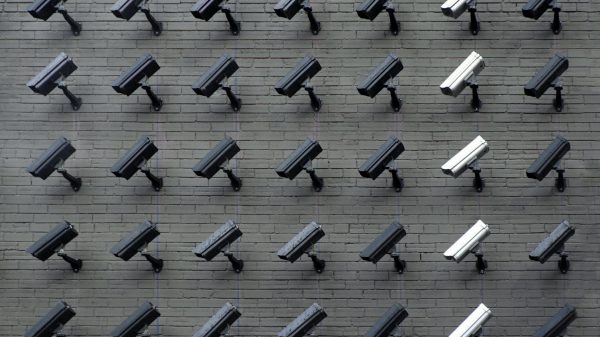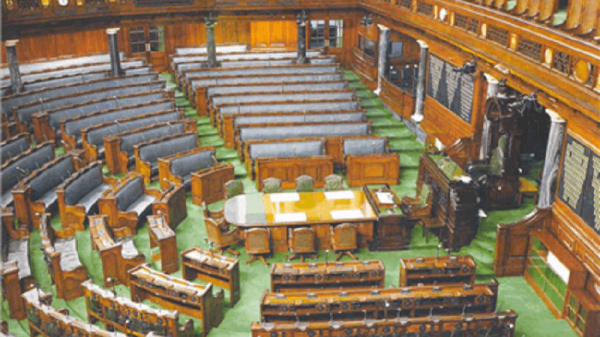Since its launch in India, Amazon Prime Video’s track record in censoring its own content has been arbitrary, and downright puzzling at times.
Sarpatta Parambarai, Pa. Ranjith’s ambitious boxing film, never had a theatrical release. And yet, Amazon appears to have got a version of the film cleared by the Central Board of Film Certification, which regulates films in theatres, DVDs, and films shown on television. The law does not stop Amazon from streaming the film as it was made. However, the company went and cowered behind the safety of a Censor Board certificate.
Even tamer swear words in Tamil films are frequently muted, anything that is even slightly politically subversive is undermined, and on top of the intrusive smoking warnings in the corner of the screen, drinking warnings are also added — warnings that Amazon has faithfully reproduced, in spite of, as recently as July 19, the government clarifying in Parliament that this was not required for streaming services. A CBFC official in Chennai refused to provide a cut list unless in response to an RTI application; we filed that application and got the cut list below. Amazon did not respond to a request for comment.
As expected, the CBFC has removed all traces of subversive messaging that filmmakers like Ranjith have increasingly got stonewalled on: swear words are obviously gone, but so are politically-charged dialogues (“He’s gone [from] […] our party!”, “dictator,” “Kalaignar,” [a reference to M. Karunanidhi, the former Chief Minister of Tamil Nadu] “Indira [Gandhi]’s dicatorship, the Congress crowd, [we demand you] resign,” “chief minister… party,” and “DMK” are all gone from the certified version of the film.
This has happened with pretty much the entirety of Amazon’s Indian film catalogue. Another film by Pa. Ranjith, Kaala, was censored noticeably by the CBFC, with several words muted throughout the film. Amazon maintained that censorship online too. But this same streaming platform released widely publicised thrillers that allowed creators to explore sensitive themes. How does that happen?
Extreme caution and ill-timed bravery
When Amazon Prime Video first launched in India, perhaps out of an abundance of caution, they over-censored their content. They removed an entire segment from The Grand Tour. They blurred genitalia in films in non-sexual contexts that were already rated for adults. Profanity was either muted out or removed from subtitles in shows. The year was 2016, and Hotstar and Netflix were pretty much the only comparable streaming services in town with a decent operational and marketing presence.
But with Indian films, the problem was even worse: Amazon, unlike Netflix, put up films as cleared for theatrical exhibition. Amazon set a precedent that others followed. ZEE5, SunNXT, Mubi, Sony LIV — name a streaming service, and they put the CBFC cut of Indian films on their service, whereas foreign films, even those that have a censored theatrical version in India, largely escape this requirement.
In spite of this damaging caution, Amazon’s originals team did not get the memo. They cleared and gave free rein to shows like Paatal Lok and Tandav, which had a freewheeling (and bold) willingness to say things about politics and religion would never fly with the CBFC. And they got into trouble with the right-wing for it.
So on one hand, Amazon was cautious enough to suppress Indian filmmakers’ art, and on the other, they got into trouble for not regulating what they put on the site. Now, Amazon has indicated that they won’t make content that will get them into trouble (“We will continue to develop entertaining content with partners, while complying with the laws of India and respecting the diversity of culture and beliefs of our audiences”). So be it.
But the laws have changed, and they have become explicit. Streaming services are allowed under the Information Technology (Intermediary Guidelines and Digital Media Ethics Code) Rules, 2021 to self-classify their content. And it’s not like the practice of releasing a CBFC-cut of an Indian film uncensored is alien to Amazon. It has done so on at least two occasions: with the Hindi film Lipstick Under My Burkha, and again with the Telugu film Arjun Reddy. That essentially means that every film Amazon releases with a CBFC certificate is a choice — a choice to keep the freedoms of filmmakers to an absolute minimum.
What’s next?
Amazon is extremely cautious, and unlike in 2016, they can justify that attitude with proven risks. Prime Video’s Head of Indian Originals Aparna Purohit, a Mumbai-based executive, was forced to present herself before police in Lucknow to be interrogated, following a barrage of coordinated complaints made over Tandav. After the Allahabad High Court refused to grant her protection from coercive action, Amazon issued an apology for the entire saga. Purohit obtained interim protection from the Supreme Court a day later.
All said and done, subjecting filmmakers in a post-IT Rules era to the Censor Board is unacceptable, especially when a theatrical release is not on the cards at all for a film. Amazon and other streaming services should obtain uncensored versions of films from Indian film production houses — the fact that Netflix largely does this already should serve as some encouragement.
One could argue that the spirit of the IT Rules is to rein in politically provocative content. But there is a middle ground between staying out of trouble without offending users and respecting creative freedom. As it stands, Amazon is stuck to the extreme end of the safe side, and it owes viewers and filmmakers the bare minimum of protecting creative freedoms to the extent that it is legally allowed to do so — even if it might be uncomfortable.
Also read
- Streaming Services Censor Themselves In India, Even Though They Don’t Need To
- Amazon Releases Lipstick Under My Burkha Uncensored — Here’s What It Should Do Next
- Netflix Chooses Not To Release Anime Series Featuring Shiva In India, Refuses To Comment
Have something to add? Subscribe to MediaNama and post your comment

























You must be logged in to post a comment Login